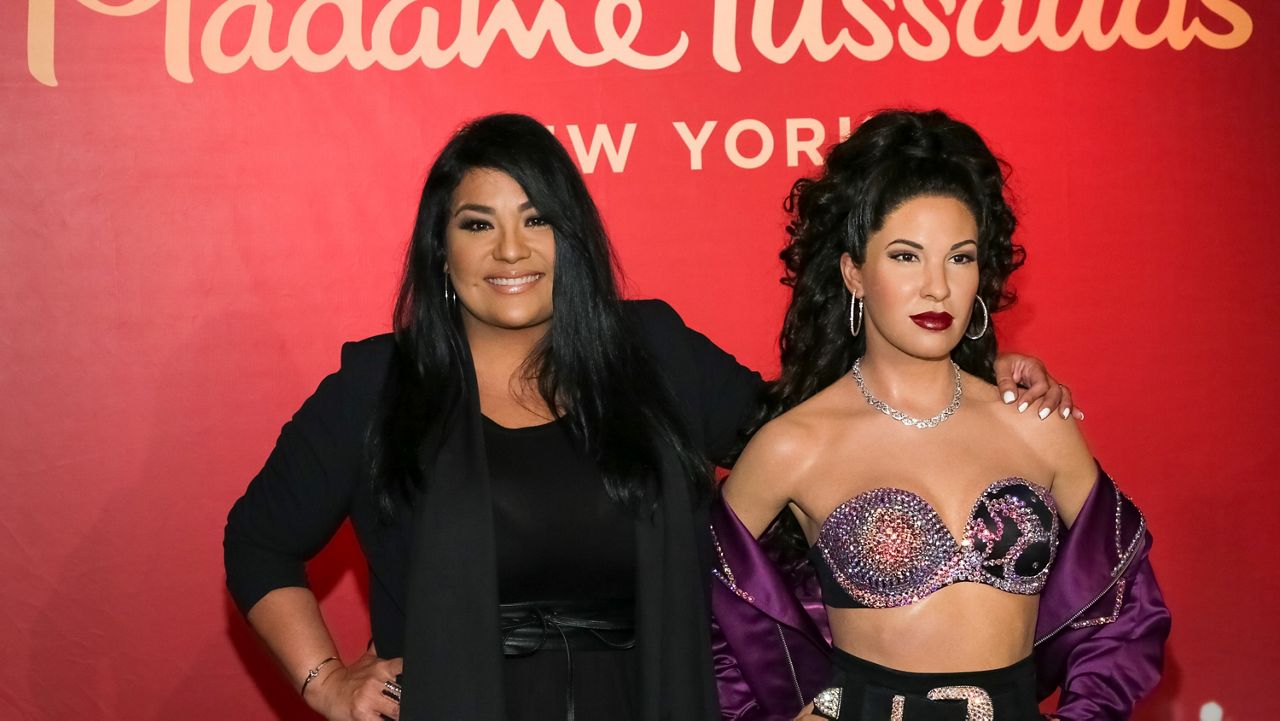LOS ANGELES (CNS) — A judge indicated Wednesday he is poised to pare, but not entirely dismiss, claims made in a lawsuit filed against the late Selena's father and sister stemming from the creation of "Selena: The Series."
Los Angeles Superior Court Judge Maurice Leiter issued a tentative ruling dismissing plaintiff Moctesuma Esparza's allegations against Selena's father, Abraham Quintanilla, for misappropriation of publicity rights and tortious interference.
The judge also tentatively dismissed Esparza's allegations against Selena's sister, Suzette Quintanilla, for tortious interference, unjust enrichment, misappropriation of publicity rights, money had and received and declaratory relief. Suzette Quintanilla, 54, is 82-year-old Abraham Quintanilla's oldest daughter and the former drummer for the singer's band, Selena y Los Dinos.
The judge said he is leaning toward allowing Esparza to move forward with all other claims against the Quintanillas, including those for negligent misrepresentation and fraudulent concealment. The judge wrote that Esparza established that both Quintanillas "suppressed the existence of the Netflix series. This is sufficient to establish a prima facie case of fraudulent concealment."
Leiter is scheduled to hear arguments Thursday before issuing a final ruling.
"Selena: The Series" is a Netflix production depicting the early years of the singer's life. The suit alleges that Abraham Quintanilla gave Esparza the rights to the life story of the late Tejano superstar in 1995. Esparza produced the 1997 film "Selena."
Included among the other defendants are Netflix Inc. and Warner Bros. Entertainment Inc.
According to the complaint, the plaintiff and the Quintanillas entered into an agreement in 1995 to transfer the life rights of Selena to a joint venture. Two years later, the Quintanillas and Warner Bros. signed contracts to make the "Selena" movie, according to the suit.
Esparza alleges the parties agreed the joint venture would continue until the expiration of the copyright of the film or by mutual agreement of the parties. Over several years, Esparza began working on a television series about Selena's youth and he alleges that in 2018, the Quintanillas wrongfully licensed the life rights of Selena to Netflix to create a series about her youth without his involvement.
Warner Bros. attorneys previously filed a motion to dismiss the claims that pertain to the studio, but the judge gave Esparza the chance to file an amended complaint.
Selena's father submitted a sworn declaration in support of the motion to dismiss all claims against him.
"Esparza has targeted the Netflix Selena series solely for strategic reasons to interfere with the exercise of my rights to free speech," Quintanilla says. "Indeed, Esparza filed this lawsuit before the Selena Netflix series even premiered."
Esparza filed the suit last Nov. 6 and the series debut was Dec. 4.
Abraham Quintanilla also says that after Selena's death, he was "very distraught" and "never sought out Esparza or his help, but he relentlessly pursued me, despite the fact I was in a deep state of mourning."
Selena was shot to death on March 31, 1995, at age 23 in Corpus Christi, Texas, by Yolanda Saldivar, the president of her fan club. The singer had been scheduled to perform at the Los Angeles Sports Arena the following day.
Saldivar was convicted of first-degree murder and sentenced to life in prison with the possibility of parole in 30 years. Now 60, she will be eligible for parole in 2025.



